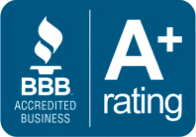Qualifying your Charitable Donations for an Income Tax Deduction
As the end of the year approaches, many taxpayers consider making charitable gifts both for philanthropic reasons as well as tax reasons. There are significant income tax benefits associated with giving to charity. These gifts are generally deductible on your income tax return if you itemize. However, you must follow the IRS’s reporting and substantiation rules to assure your charitable deduction.
Below is a discussion of the various requirements you will need to follow in order to claim a charitable deduction on your taxes.
Gifts of Cash. Gifts of cash to a charity are generally deductible provided you have the appropriate documents to substantiate the gift. This can be in the form of a written communication, by letter or email, from the charity showing the charity’s name, the contribution date and the gift amount. Or, if you do not receive confirmation from the charity of the donation, you may be required to establish the contribution by a bank record such as a statement from a financial institution, an electronic fund transfer receipt, a canceled check, a scanned image of both sides of a canceled check obtained from a bank website or a credit card statement.
Gifts of clothing or household items. To qualify for a charitable deduction, clothing or household items contributed to charity must be in good condition or better at the time of the contribution. You must also the necessary documentation of the gift, which is described below. The term household items include furniture, furnishings, electronics, appliances, linens and other similar items. Food, paintings, antiques and other objects of art, jewelry, gems and collections aren’t household items.
Non-cash contributions of less than $250. An income tax charitable deduction isn’t allowed for non-cash charitable contributions of less than $250 unless you maintain for each contribution a receipt from the charity showing: (1) the name and address of the charity; (2) the date of the contribution; (3) a description of the property in sufficient detail under the circumstances (taking into account the value of the property) for a person who isn’t generally familiar with the type of property to ascertain that the described property is the contributed property; and (4) for securities, the name of the issuer, the type of security and whether the securities are publicly traded.
Substantiation requirements for contributions of $250 or more. To deduct a gift of $250 or more, you must have a written receipt from the charity describing (but not valuing) the gift. If any goods or services were given to you in exchange for your gift, the receipt must describe them and contain a good faith estimate of their value, or if the charity provided no goods or services in consideration of your gift, the written receipt must so state. The receipt need not contain your Social Security number. Generally, separate payments are considered separate contributions for purposes of the $250-or-more threshold unless the payments are made on the same day. You must have the receipt in your possession before you file your income tax return.
Non-cash gifts, form 8283, and appraisals. If you make non-cash gifts in one calendar year that total more than $500, you’ll have to include Form 8283 with your income tax return. Also, when the combined value of all of your non-cash gifts given to charity is more than $5,000 ($10,000 for closely held stock), you’ll generally need to have it appraised unless it is a gift of a publicly traded security.
If you need an appraisal, the gift must be made within 60 days after the date of the appraisal. The property can be appraised after the date of the gift, but you must receive the appraisal by the due date (including extensions) of the return on which the deduction is first claimed.
Qualified appraisals and appraisers. Not just any appraisal will do. If you are required to have a gift appraised, it must be a “qualified appraisal” done by a “qualified appraiser.” A qualified appraisal is an appraisal document that is prepared by a qualified appraiser in accordance with generally accepted appraisal standards and otherwise complies with certain other requirements.
A qualified appraiser is someone who has the appropriate professional designation and educational experience to appraise the property for which the appraisal is being performed.
A qualified appraiser may not be related to—or regularly employed by—you or the charitable donee.
An appraisal fee isn’t a charitable gift. But, if you itemize, the appraisal fee is deductible on your income tax return as a miscellaneous deduction.
Special Rules for used car donations. The deduction for charitable contributions of autos, other motor vehicles, boats and airplanes exceeding $500 depends on what the charity does with the vehicle after it is donated. If the charity sells the vehicle without any significant intervening use or material improvement of the vehicle, the deduction is the smaller of the gross proceeds from the sale or the vehicle’s fair market value on the date of the contribution. The charity must provide an acknowledgement of the gift and subsequent arms length sale.
If the charity uses or makes improvements to the vehicle after it is donated, the deduction is the fair market value at the time of the contribution. The charity must provide an acknowledgement of the gift and the certification of use or improvement.
If the charity gives or sells the vehicle to a needy individual at a price significantly below fair market value in direct furtherance of a charity’s charitable purpose of relieving the poor and distressed or the underprivileged who are in need of a means of transportation, the deduction is the fair market value at the time of the contribution. You must obtain an acknowledgment from the charity and substantiate the fair market value.
In all cases where a vehicle is donated, you must obtain from the charity a written acknowledgment within 30 days of sale of a vehicle that isn’t significantly improved or materially used by the charity, or, in all other cases, within 30 days of the contribution.
Special rule for gifts of art. If you donate artwork with a total value of $20,000 or more, your return has to include a copy of the signed appraisal itself. If any single artwork is worth $20,000 or more, the IRS may ask you for an 8 × 10 color photo (or a 4 × 5 color slide) of the donated property. You don’t have to send the photo with your tax return, just have one ready.
Special rule for very large gifts. For gifts valued at over $500,000, the donor must attach the qualified appraisal—as well as the fully completed Form 8283—to the donor’s tax return. For purposes of the dollar thresholds, all similar items of property donated to one or more charitable donees are treated as one property.
If you receive a Benefit from the Donation. If a charity receives a gift from you, for which you received or were entitled to a benefit, such as a parting gift or auction item, you may be limited from taking a deduction for the whole contribution if the benefit to you was valued at greater than 2% of the payment, or if you only receive a low-cost or token item (for example., a bookmark, mug or T-shirt).


